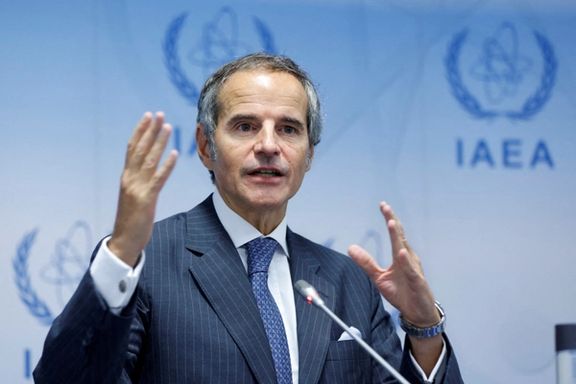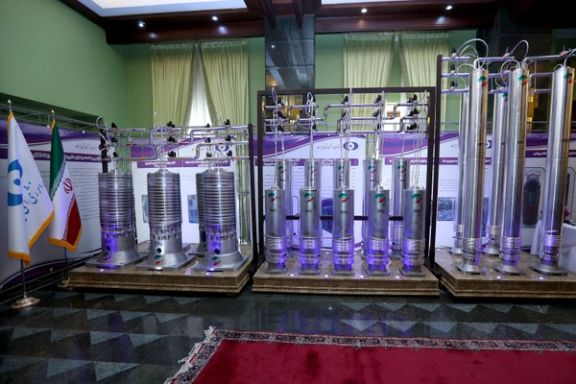Grossi Admits ‘No Progress’ In Iran’s Nuclear Promises

The head of UN's nuclear watchdog, Rafael Grossi says ‘significant safeguards issues remain outstanding’ in Iran’s nuclear program.

The head of UN's nuclear watchdog, Rafael Grossi says ‘significant safeguards issues remain outstanding’ in Iran’s nuclear program.
Speaking at the IAEA General Conference on Monday, Grossi admitted that there has been no progress in ‘implementing the activities outlined in the most recent joint statement he made with Iran in March 2023.
Back in March, a few days before a quarterly meeting of the IAEA Board of Governors, Grossi visited Iran to reach an agreement that would avert yet another resolution requiring Tehran to cooperate to resolve long-standing disputes.
Out of that trip came a Joint Statement in which the Islamic Republic of Iran expressed readiness “to provide further information and access to address the outstanding safeguards issues.”
The major outstanding issue remains traces of uranium the UN inspectors found at three sites previously undeclared. Iran has failed to provide satisfactory answers.

Critics of the Joint Statement said it was vague and too open to interpretation. They pointed out that the regime in Iran had made such promises many times without taking any meaningful step that would verify the peaceful nature of its nuclear activities.
Grossi, however, defended his endeavour, predicting a significant improvement in IAEA relations with Iran that would end several years of non-cooperation and evasion.
Seven months later, it seems his optimism was misplaced.
Iran is supposed to provide access to information, locations and people, Grossi told a news conference at Vienna airport soon after returning from Tehran in March, suggesting a vast improvement after years of Iranian stonewalling.
“I cannot but recognize that implementing the activities set out in the most recent Joint Statement between myself and Iran –in March this year– has not made the progress I was hoping for,” said Grossi at the IAEA General Conference, where he was formally appointed as head of the agency for another 4-year term.
Western governments have been hoping for a miraculous change of hearts in Tehran that would grant the IAEA the access they enjoyed right after the JCPOA (or the 2015 Nuclear Deal).
The Islamic Republic, however, has only pulled away.
A joint statement by UK, France and Germany to the most recent Board of Governors meeting in mid-September noted that “Iran has not allowed effective verification and monitoring activities in relation to the production and inventory of centrifuges and key components, heavy water and uranium ore concentrate for more than two and a half years.”
Despite Iran’s clear and continuing non-compliance, the E3 (and the US) have so far failed to come up with measures that would ensure the Islamic Republic’s cooperation with IAEA.
And their inaction seems to have emboldened the Iranian regime.
Some of IAEA’s most experienced inspectors were required to leave Iran not long after the E3’s recent statement that asked Tehran to cooperate fully and immediately on issues of concern, including explaining uranium traces found at undeclared sites.
A few days later came the official admission that the two issues were related.
“We have no problem with the inspections, but with some inspectors” President Raisi said in a press conference on the sidelines of the UN General Assembly, confirming that the decision to expel inspectors and further limit IAEA’s probing capability was a “reaction to some unfair statements by the Western members of the IAEA.”
Grossi’s admission Monday of his frustrated hopes can be read as a vindication of those who back in March criticized his Iran visit and his Joint Statement on the grounds that the regime in Iran cannot be trusted.
In his statement to IAEA General Assembly, Grossi repeated that “only full cooperation by Iran and tangible results will take us to credible assurances that Iran’s nuclear programme is exclusively peaceful.”
Grossi –like the E3 and of course the Biden administration– acknowledge that Iran’s nuclear program has reached “levels not seen in countries without a nuclear weapons program.”